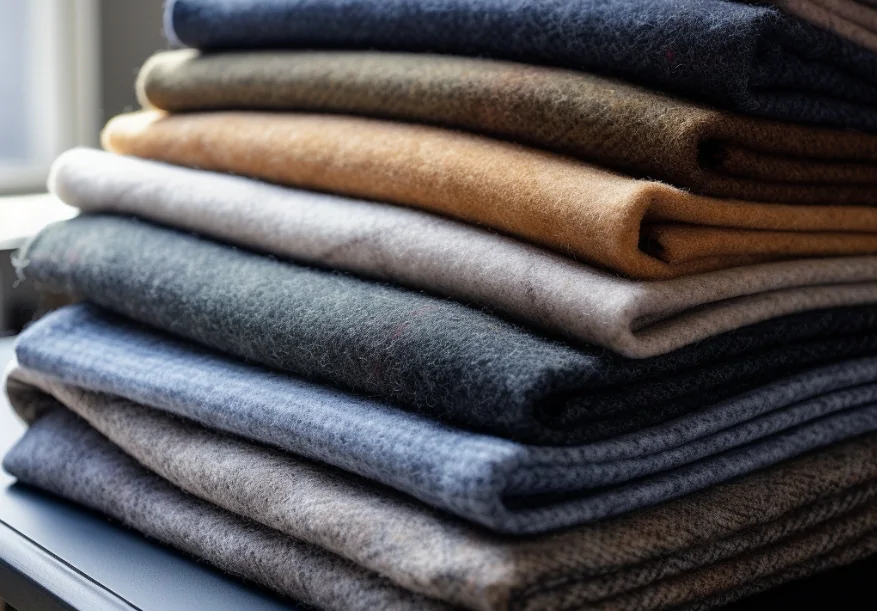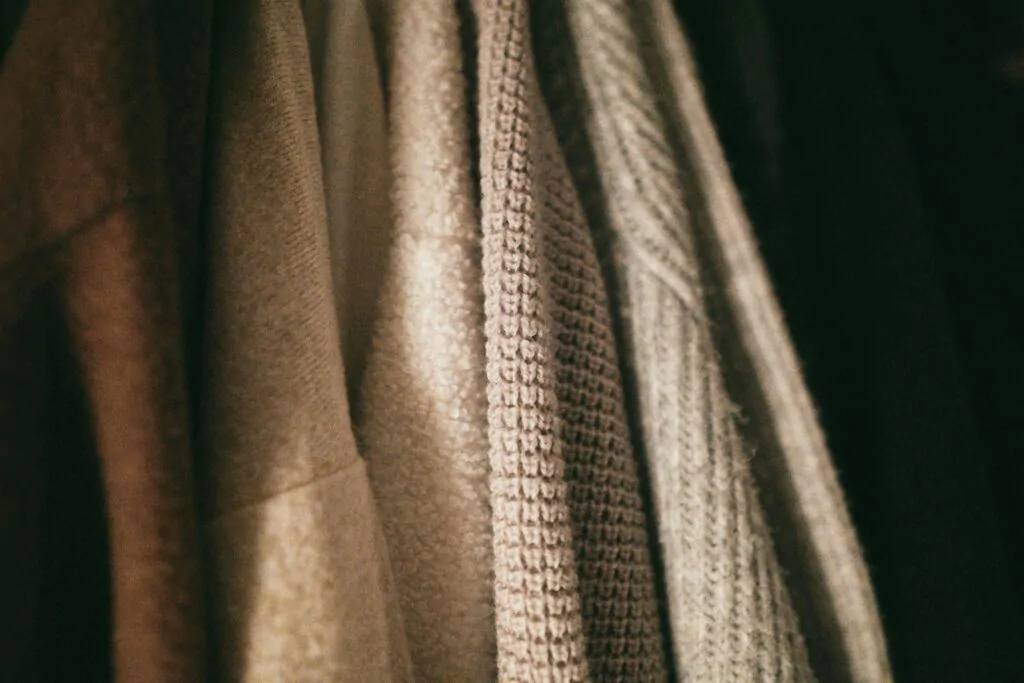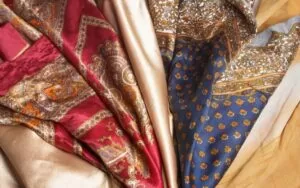As someone deeply involved in the high-end clothing customization industry, I have developed a keen understanding of various fabrics, including wool. In this blog post, I’ll share my insights on the advantages and disadvantages of wool fabrics, which are crucial for anyone in the garment industry to understand.

Advantages of Wool
Durability and Longevity
Wool is highly durable and can last for a long time. Wool fibers can be bent back on themselves over 20,000 times without breaking, much higher than cotton or silk.
Moisture-Wicking and Breathability
Wool is excellent at wicking moisture away from the body and is also breathable, making it comfortable to wear in both warm and cold climates.
Natural Insulation
Wool’s natural insulating properties keep you warm in winter and cool in summer, adapting to different weather conditions.
Fire Resistance
Wool is naturally fire-resistant due to its high nitrogen and water content, making it a safer choice for clothing and bedding.
Environmental Friendliness
Wool is a renewable resource and biodegradable. After use, it decomposes and releases nutrients back into the soil.
Resistance to Wrinkles and Mildew
Wool garments do not crease or wrinkle easily and are resistant to mildew.
Odor Resistance
Wool can absorb up to 35% of its weight in moisture, making it resistant to odors since the microbes that cause body odor do not get into contact with the fibers.
Disadvantages of Wool
Cost
High-quality wool can be expensive, making it less accessible for some people.
Care Requirements
Wool requires special care, including hand-washing and air-drying, which can be inconvenient for some users.
Itchiness
Low-quality wool can be itchy and cause discomfort, especially on sensitive skin.
Prone to Shrinking
Wool fabrics can shrink if not cared for properly, requiring careful laundering and maintenance.
Limited Accessibility
Due to its cost, wool is not widely used in fast-fashion brands, making it less accessible for budget-conscious consumers.
Conclusion
In summary, wool is a versatile and high-quality fabric with numerous advantages, including durability, moisture-wicking properties, natural insulation, and environmental friendliness. However, its higher cost, special care requirements, and potential for itchiness and shrinking are factors to consider. As a professional in the clothing industry, it’s crucial to weigh these pros and cons when choosing fabrics for our products, ensuring we cater to the diverse needs of our customers.
Through my company, Natural Touch Clothing, I strive to provide the best quality garments, taking into consideration these fabric properties to ensure customer satisfaction and environmental responsibility. For more information on our products and services, visit our website at lovenaturaltouch.com.







